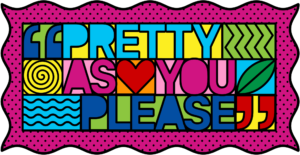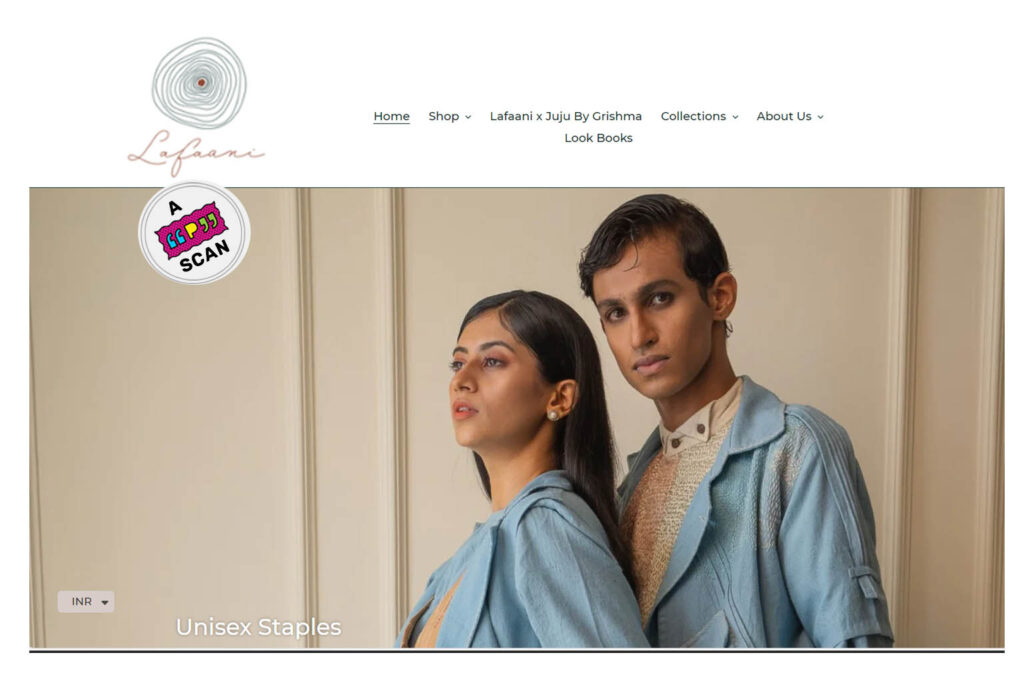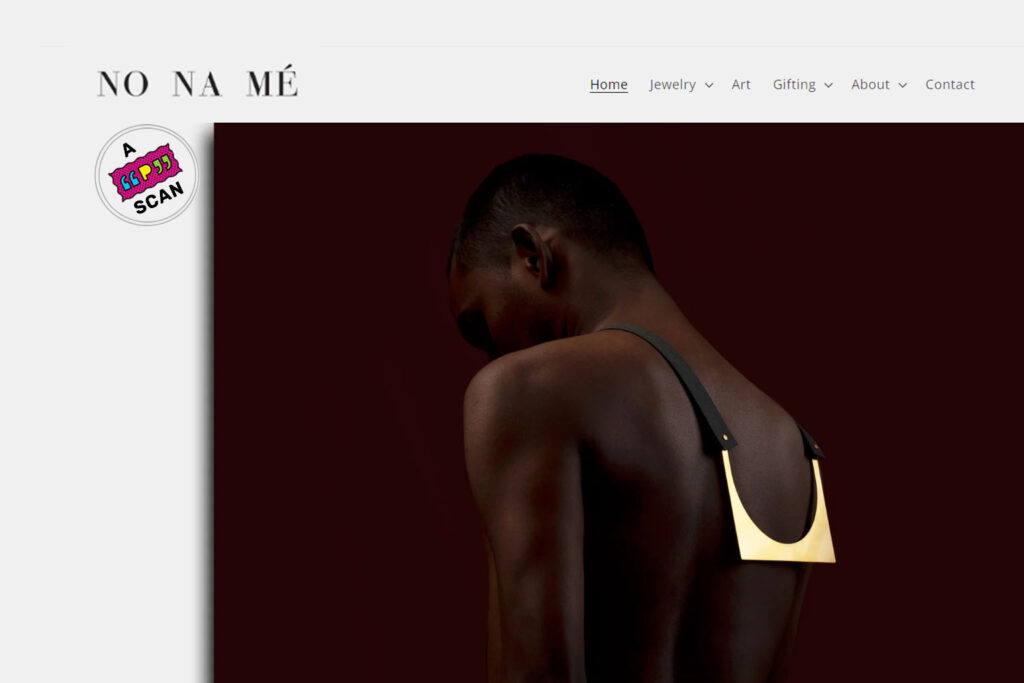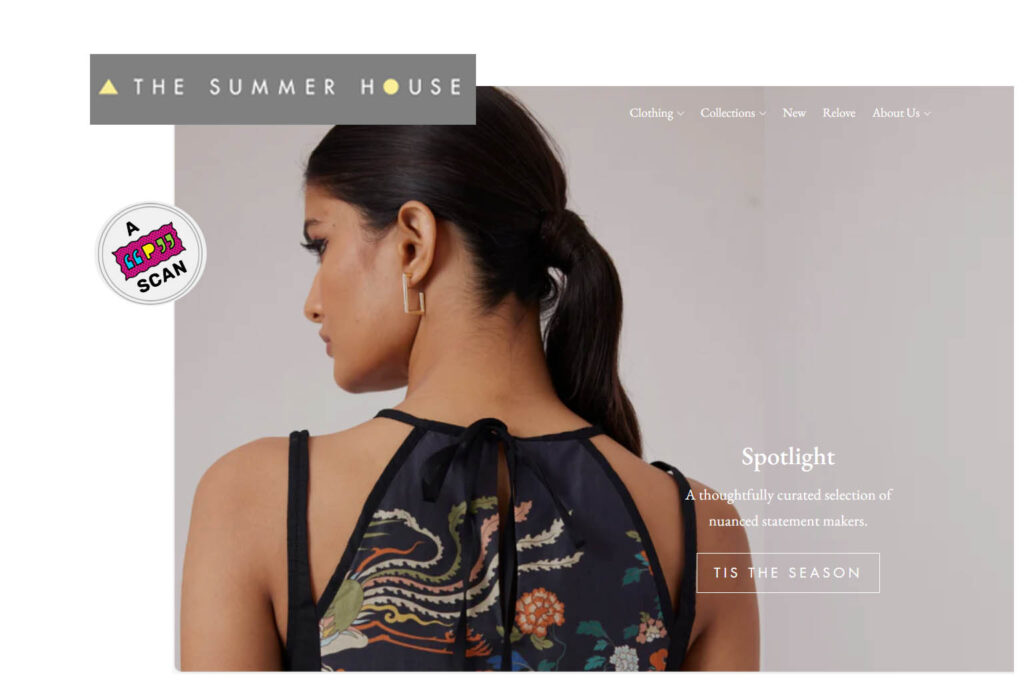What they make:
Tops, shirts, pants/trousers,
dresses, jackets, overlays,
accessories.
Where to buy:
www.lafaani.com
E-commerce: Amala Earth, Tata Cliq Luxury, Ogaan Market, Flourish, Saahra, Our Better Planet, Refash, UpcycleLuxe, Brown Living, Scrollnshops, Defy'ne, Meolaa, Kamakhyaa, Indyverse, Butterfly Club, Salt Mango Tree, Consciously, Frobolous, Loom and Things, Powered By People
Physical stores: Syne, Goa Bate Papo, Goa Canvas, NY Butterfly Club (New York)
Lafaani was born of a mutual love and admiration for timeless design, Indian textiles and traditional crafts. Lafaani’s co-founders, Rashmick Bose and Drishti Modi, met while pursuing their postgraduate degree in Environmental Studies and Resource Management, and found themselves working together in remote water-stressed Indian villages on sustainable agriculture and zero-waste projects. Lafaani was a culmination of their learnings, experiences and interests. The clothes embody the philosophy of slow clothing.
Lafaani is an Urdu word that translates to immortality, reflected in the brand’s commitment to creating quality clothing that lasts. By creating handcrafted products, the brand is also trying to immortalise the labour and toil of the artisans who breathe life into it. Lafaani believes in celebrating craft heritage in all its splendour and aspires to create collections inspired by the amalgamation of traditional techniques and ever-changing aesthetics.
PRETTY FOR
THE PLANET
4.5/5
Lafaani’s garments are created keeping functionality, durability and longevity in mind. The brand launches 2-4 collections a year, and produces less than 100 units of clothing a month. They do not stock up on inventory and only utilise the fabric in stock, so there is very little issue with deadstock. They are limiting greenhouse gas (GHG) emissions along the supply chain by focusing on handcrafted products, from seed to stitch, and ensuring biodegradability by using only natural fibres and trims.
Lafaani is trying to restore the heavily broken land-to-loom system through the fabrics they use. They embrace zero-mile, regenerative agrarian practices for low-impact textile production, including the desi cotton movement, using bio-based mono-materials such as Kala Cotton and the naturally almond-coloured Dharwad Desi Coloured Cotton (DDCC1), also called Brown Cotton or Kandu. They use Ambar charkha-spun, handwoven Cotton, and organic cotton made using GOTS-certified yarn. Using kora (raw and unbleached) fabric, Lafaani is minimising water consumption from dyeing yarns. For garments that are coloured, they dye the fabrics in small batches, using handcrafted, chemical-free natural dyeing pigments such as myrobalan, iron, madder, indigo and catechu. If needed, the colour of the fabric is fixed using natural mordants such as alum and rhubarb leaves. The brand is also using leftover trims to make accessories, and coconut shell buttons, mother-of-pearl buttons, jute threads, cotton lace and wooden buttons for garment attachments.
Lafaani uses tools and resources such as Fashion Carbon Footprint Calculator and Climate Action API, for comprehensive life cycle analysis and impact assessment, to ensure transparency and third-party feedback. In an interesting move, the brand is offsetting the impact of every purchase made on the website through the Sustie positive climate action programme. Talk about going the extra mile!
Lafaani also promises a 100% zero plastic policy for their packaging, by using Lafaani cloth bags for packing garments, which is then inserted into a biodegradable mailer bag or a paper- or starch-based courier bag. The tags are made of recycled paper and water-activated kraft paper tape is used to secure the packaging. As the clothes are made-to-order, there is no return policy in place, limiting the carbon footprint caused by returns.
PRETTY FOR
THE PEOPLE
4/5
Lafaani is as transparent about the people involved in its supply chain as it is about the remuneration they receive, whether it is a monthly salary or contractual basis. Their ethics are rooted in paying fair living wages, and in generating economic opportunity for migrant artisans and for women with knowledge of stitching and embroidery. They aim to create entrepreneurs by encouraging tailors to create and maintain their own tailoring unit. Lafaani have their own manufacturing facility, in Delhi, with a team of six people, including the pattern master, the master tailor, the checker and women hand embroiderers. To fairly remunerate and acknowledge the makers of the garments for their work, the brand attaches a maker’s tag that goes out with each garment. They endeavour to pay the standard rates prevalent in the artisanal clusters by directly negotiating fair prices as per the artisan’s demand, cutting out any exploitation from middle-men.
Lafaani is supporting initiatives that are conserving pre-loom processes (choosing yarn, dyeing, warping, drafting), creating direct sustainable livelihoods for weavers and artisans across the supply chain. Their intention is to conserve and maintain indigenous resources and crafts. Lafaani has forged meaningful partnerships with grassroot organisations like Karghewale and Yali Textiles that work with traditional spinning, hand weaving and hand dyeing communities in Gujarat, Karnataka and West Bengal. The brand also uses Kantha embroidery extensively, done by skilled embroiderers from Bengal and Bihar, at the brand’s workshop itself.
PRETTY FOR
YOU
3.5/5
Lafaani’s designs are rooted in sustainability, claiming 100% biodegradability. They create multifunctional pieces, designed to be worn in various ways and that seamlessly transcend from day to night. They are fairly inclusive, with unisex clothing as well as sizes ranging from XS-4XL. The clothing is versatile, lending itself to be worn by itself or experimented with, by layering. However, the aesthetic may not be for everyone. And while the price points are representative of the time, design and skill that lies behind the crafting of each garment, they may be inaccessible for some.
The brand is currently testing out the demand for smart casuals that can help the wearer transition between dressed-up and dressed-down occasions. Talk about multifunctionality! By working closely with the artisans to create their designs, the brand is bringing traditional, hand-spun garments to your wardrobe.
Lafaani’s garments are created with attention to detail, and are crafted in natural materials with repair kits provided to prolong garment use. By introducing planet-friendly buttons to embroidery threads, Lafaani is showing us that sustainability can be achieved even with the smallest steps. To deal with the waste generated, the brand is repurposing it into 100% upcycled accessories. Lafaani has a three-tiered quality check process to ensure accuracy but has a zero return policy, as each piece is made to order. It does however provide size customizations free of cost.
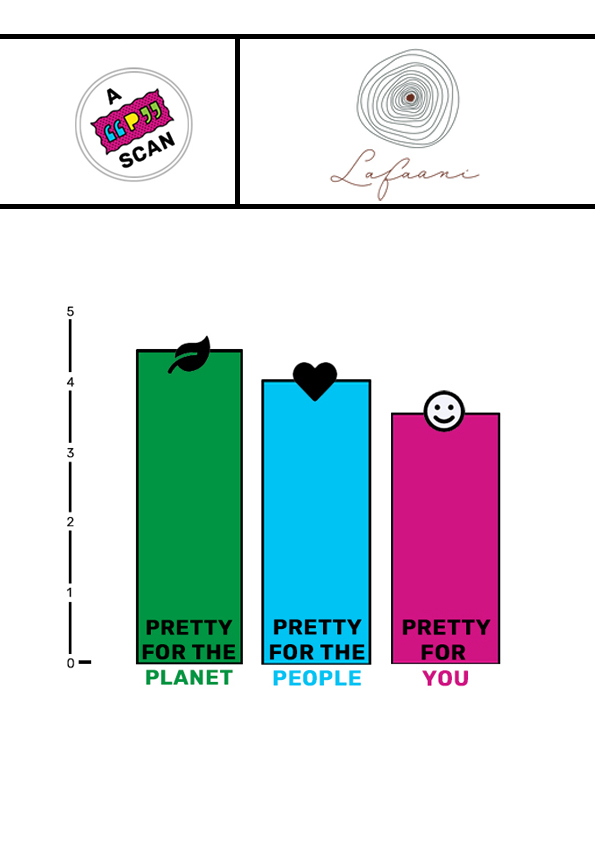
The Sustainable Fashion Edit
Our fashion directory on homegrown, sustainable fashion brands.
If you know of a brand that deserves to be here, we’d love to hear from you.
